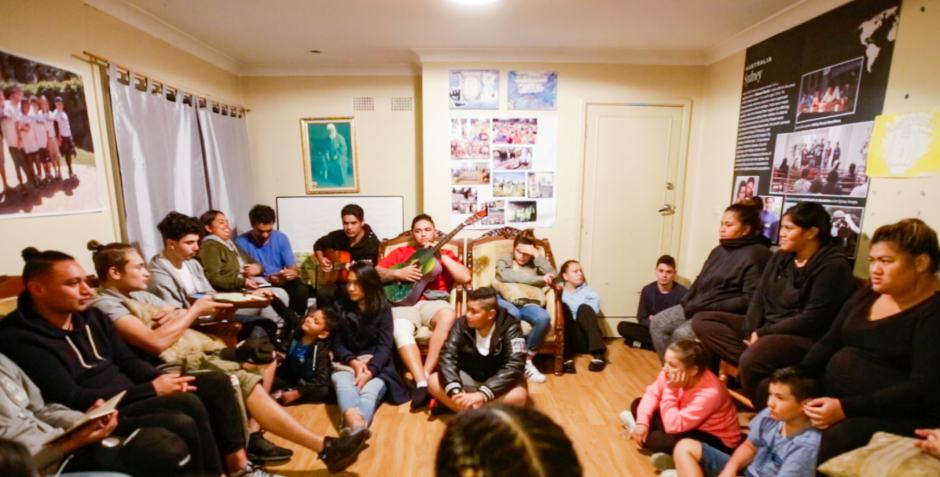The Bahá’í Faith, as a global movement, emphasizes the importance of community building and social transformation. The principles that are fundamental to the Bahá’í teachings serve as a springboard for profound community engagement and development. One prominent illustration of these principles can be found in the community building efforts in neighborhoods across Sydney, which exemplify how collective action towards a shared vision can foster profound social cohesion. This article will delve into the nuances of such efforts, particularly as brought to light by **ABC**, an Australian Broadcasting Corporation initiative that highlights the below-the-surface dynamism of Bahá’í-driven community activities.
The Bahá’í teachings advocate for a holistic approach to human development. These teachings delineate the instrumental concept of the “spiritual path” that each member of the community undertakes. The metaphor of a “mosaic” aptly captures the essence of community—a harmonious amalgamation of diverse individuals, each contributing their unique narratives and talents towards the collective good. In Sydney, this mosaic is further enriched through Bahá’í-inspired community building initiatives, an endeavor that seeks not merely the passive coexistence of varied identities but their active engagement and interdependence.
At the heart of Bahá’í community-building efforts is the idea of unity in diversity. This principle acknowledges the necessity for inclusivity and cooperation among individuals from various cultural and socio-economic backgrounds. In practice, Bahá’í communities in Sydney conduct diverse programs, such as study circles, children’s classes, and junior youth empowerment programs, all of which serve to cultivate a deep sense of belonging. Such initiatives enable participants to explore their capacities, broaden their perspectives, and contribute to the welfare of the community. They act as vehicles towards nurturing the virtues that Bahá’ís emphasize—compassion, kindness, and responsibility.
Moreover, commitment to service is another pivotal aspect that guides the Bahá’í community’s efforts in Sydney. Service transcends mere volunteerism; it embodies a profound obligation to address societal challenges, echoing the Bahá’í belief that every individual must engage in the betterment of humanity. This commitment finds expression in various community projects addressing local needs, ranging from environmental stewardship to educational enhancement, thereby fostering a culture of activism rooted in spiritual values. For instance, Bahá’í individuals often collaborate with local organizations to implement programs that inspire environmentally sustainable practices, thread the needle between spiritual growth and ecological responsibility.
As Bahá’í communities in Sydney implement these services, they invariably encounter challenges, which serve as catalysts for enhancing their collective resilience. The ability to view these challenges as opportunities for growth underscores a core tenet of the Bahá’í teachings—that adversity can be transformed into a stepping stone towards greater achievements. The intricacies of navigating various sociocultural landscapes require adaptability and innovation; thus, the Bahá’í community harnesses these moments to refine their strategies and bolster their collective purpose. Such experiences imbue community members with a sense of agency, reinforcing their role as stakeholders in shaping their environment.
The narratives arising from these community-building experiences also reflect a profound connection to the wider Bahá’í global narrative, which underscores the role of consultative processes. Consultative discourse serves as a platform for individuals to express their thoughts and aspirations freely, fostering an atmosphere of mutual respect and understanding. This practice is essential in a diversely populated city like Sydney, where individuals can come together to discuss their lived experiences and aspirations. Engaging in such dialogue enables community members to transcend personal biases and cultivate a shared understanding that enhances communal bonds. The metaphor of the “ocean” aptly illustrates this—each wave representing an individual, while the vast body of water symbolizes the collective strength and unity derived from working together towards common goals.
While many cultural narratives might highlight the divisions within urban landscapes, the Bahá’í approach offers a refreshing perspective, emphasizing collaboration over contention. Through community dialogues and collaborative projects, the Sydney Bahá’í community has been able to bridge divides and foster cross-cultural understanding. Such efforts illuminate the potential for transformative change when individuals unite under the banner of common purpose and shared values.
In conclusion, community building in Sydney through the lens of Bahá’í teachings illuminates a pathway towards greater social harmony and individual fulfillment. The metaphorical tapestry crafted from the diverse threads of human experience offers a vivid illustration of how inclusive practices, rooted in shared spiritual principles, can yield profound benefits for all community members. The ABC’s spotlight on these endeavors serves not only as a reflection of the progress made but also as an invitation for wider society to embrace the Bahá’í ideals of unity, service, and resilience. Ultimately, the community-building efforts in Sydney exemplify the transformative potential of collective action, echoing the Bahá’í vision of a just, peaceful, and prosperous world for all.
